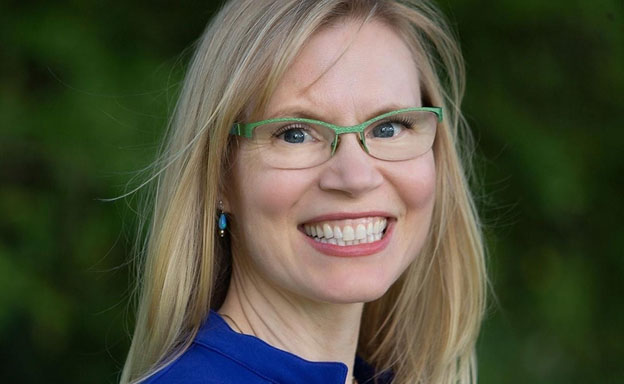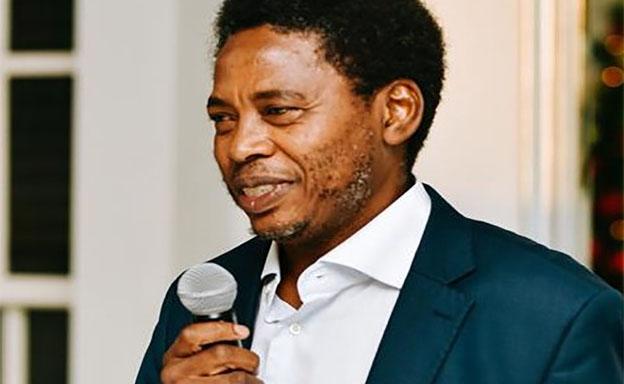Watch the full webcast
We'd like to know what you thought of this episode
The Covid-19 pandemic had many negative effects on mental health – particularly for healthcare workers on the frontline. Dr Merika Tsitsi, head of internal medicine at Chris Hani Baragwanath Hospital, says that a major reason for this is that health workers were forced to confront their own mortality in a profound way. “Many of us had to grapple with the information we were given that the virus was highly infectious and that it had a significant mortality rate,” he says.
Other factors also negatively affected their mental health, such as worries about the availability of personal protective equipment (PPE), the fear of not being able to cope with the number of patients that would be coming through hospitals, and the prospect of dealing with a large number of patient deaths in a short space of time. As the pandemic progressed, Tsitsi says these fears and anxieties resulted in several negative behaviours, such as avoidance.
“A lot of healthcare professionals were actually afraid to look after their patients,” he says.
It wasn’t just doctors and nurses who were affected though. Tsitsi says that peripheral essential healthcare workers such as porters and cleaners were also fearful. To try and allay these fears, Tsitsi and his team did three key things to help mitigate stress and help their workers cope better. Firstly, they provided training to all healthcare workers about how the virus was transmitted and how people could protect themselves with PPE. Next, they looked at people’s emotional health, forming teams that were given group therapy by psychologists, and offering individual therapy if needed. Thirdly, they looked at how workers could be supported from a religious perspective, by giving them direct access to religious leaders – whether that was a rabbi, a pastor or an imam – who could then support them and contribute positively to their overall wellbeing. All these measures were about giving coping mechanisms, whether practical or mental, to help them be more resilient in the face of the pandemic.
Five key tools to help build resilience
The world benefits from extraordinarily resilient individuals,” says Dr Jennifer Wild, a consultant clinical psychologist, associate professor and senior research fellow at the University of Oxford. Much of her research centres around developing tools to help people in high risk jobs, such as police officers, fire fighters and paramedics, cope with PTSD and depression. “In my 20 years of practice, I’ve noticed that the tools that transform extreme trauma are the same tools that supercharge this resilience,” she says.
Wild and her team have identified five key tools that can help build resilience and prevent PTSD. In light of the Covid pandemic, she says that many of these tools could be applied to workers in the healthcare sector. These tools are:
-
Extraordinary thinking
“This is about thinking about how to move forward, rather than why the past happened,” says Wild. Dwelling on negative things that have already happened leads to us going round and round in circles, reinforcing the neural networks of these thoughts and making them the default way of dealing with stress and disappointment. Rather than focusing on why the problem exists, we should rather shift to how we can deal with it. In the healthcare context, Wild conducted a study on group of 500 paramedics, and found that paramedics who tended to dwell on the past were more likely to develop PTSD in future.
-
Then vs now
“This helps break the link between the future and the past, by guiding us to think of how all the reasons that the now is different to the past,” says Wild. For example, if a healthcare worker treated a young child who died in their care, the next time they work with a child of a similar age, they could think about how this situation is different. This could be small details such as different mannerisms or different coloured hair of this child, or even the fact that they are treating them in a different room. “Employing this way of thinking then keeps healthcare workers rooted in the present, which is where you need to be to supercharge your resilience.”
-
Plan ahead
This is a simple and very specific tool where you create a plan for the following day by assigning tasks in half-hour timeslots. It also includes scheduling in a fun activity, whether that’s exercise, meditation, engaging in a hobby or meeting a friend. Wild says that it’s key to revamp or rewrite the plan if you find that you’ve wildly underestimated how long a task would take, such as responding to email or giving a patient consultation.
“Planning ahead moves routine decision making to the night before, which frees up valuable mental energy for challenging tasks the next day, and keeps you focused on your goals,” she says. Planning a pleasurable activity in the day has also been shown to dramatically improve wellbeing and reduces psychological distress, partly because if you schedule a short break or wellbeing activity, you’re more likely to actually do it.
-
The three-minute carrot
This is a tool to kick avoidance, which Wild says breeds anxiety. The technique involves trying a task for three minutes, and then deciding whether or not to carry on with it or stop. As it turns out, most people decide to carry on as they realise the task wasn’t as painful as they thought it would be. In doing this, it’s important to use positive language reframing, from ‘I can’t’ to ‘I don’t’.
“For example, if you need to work on a grant presentation on a Tuesday evening but someone has invited you out for a drink, it’s more helpful to say, ‘I don’t drink in the week and I need to finish my presentation’ rather than ‘I can’t go out’, as the latter makes it less likely that you’ll follow through on the task,” she says. It also helps to be guided by how you want to feel in the future, and use that to inform decisions today. For example, if you know that going to the gym makes you feel upbeat, make the decision to go to the gym based on how you know it’s going to feel in future, even if you don’t necessarily feel that right now.
-
Focus
This tool is about shifting attention from your own thoughts, fears and feelings and onto the outside world. Too much self-focused attention increases anxiety and stress, while moving our attention out of our head and into the task at hand can help us feel calmer. Wild also says people are happiest when they are absorbed in a task that is challenging enough to be stimulating, but not so challenging that it is frustrating. “People who have high levels of resilience focus on what they can do rather than what they can’t do,” says Wild.
Positively reframing an incident
Wild gives the example of a paramedic who was dealing with a colleague’s attempted suicide. While the colleague survived thanks to the paramedic’s quick thinking, the paramedic had lost his own brother years earlier to suicide, so this incident was severely triggering. In treating him, Wild helped him shift his thoughts from ruminating about what we could have done differently to how he had actually helped. She also helped him see that the colleague had some responsibility for the incident too. “This reframing, also known as cognitive reappraisal, helped him to look at what he did in a more positive light, and to look at it from an objective standpoint rather than dwelling on his own negative feelings about the incident,” she says.
On the topic of self-talk, Tsitsi notes that the Covid pandemic highlighted how much what one’s colleagues are saying affects an individual, in addition to what they say to themselves.
“What your colleagues say to you can cause you to ruminate,” he says. “In South Africa, the healthcare environment can be highly critical, and sometimes senior staff do not take cognisance of that when talking to their juniors.”
In these scenarios, having robust self-esteem helps – Wild advises reminding yourself that this is the culture in which you work, you have several competencies, and then reminding yourself of those. Wild says, “It’s about looking for evidence of your own competence: what are you doing that is going well? This can help balance the focus. It’s also about recognising that you can’t change the past, and that it doesn’t help things to keep revisiting it.”
The importance of self-care
Within the healthcare sector, self-care is an essential part of a professional’s positive mental health. Tsitsi says that especially in South Africa, doctors and healthcare workers operate in a highly stressful environment with long hours, which makes daily planning a crucial part of ensuring that they actually take wellness breaks. “While there’s a perception that taking a break is being lazy, doing this actually helps you perform better and improve your wellbeing so you’re a more productive employee,” he says.
Tsitsi notes that the legislative framework to mandate these breaks in the workplace is already present in South Africa, but it’s not enforced and in fact is often discarded within our medical sector.

The team context
While Wild works primarily with individuals, most of them work within teams, and they report back as to what is helpful in building a team that is supportive. One way, says Wild, is to pay attention to how your colleague is doing.
“You’re thinking about someone else, so you’re out of your own head, and you may end up doing something kind,” she says. “The parts of the brain associated with optimism become much more active, which leads to more active problem solving.”
Wild also says that it’s important that there is social cohesion within the team. Research conducted in the firefighters involved with the UK’s Grenfell Tower fire in 2017 found that those who felt there was team cohesion were far less likely to develop PTSD in future.
Line manager training to help recognise stress early
In encouraging institutions to foster habits of self-care for their medical professionals, Wild also advocates training line managers to help recognise early signs of stress in their team members, and then reaching out to them before the stressor spirals out of control. At the same time, Wild says it’s also an individual’s responsibility to know what their own stress warning signs are. “This could be anything from working more than three shifts in a row, to only working with children who are critically ill,” she says.
Tsitsi agrees with this, noting that in South Africa, many staff are not trained to recognise stress among employees. “Whenever you want to take time off, sometimes your seniors will look negatively on this as if you are not pulling your weight,” he says. “It’s a long road for our country to achieve this, but we need to start somewhere.”
About our speakers

Dr Jennifer Wild
Dr Jennifer Wild’s area of expertise is in developing and evaluating evidence-based interventions to prevent stress-related psychopathology in at risk populations.
With her team, she developed internet-delivered cognitive training in resilience (iCT-R), which targets modifiable risk factors for post-traumatic stress disorder and depression in emergency workers. This preventative intervention is being disseminated to emergency services across England by its mental health charity, Mind.
Dr Wild leads SHAPE Recovery, an evidence-based wellbeing programme, to support hospital and paramedic employees during and after Covid-19. She recently published a popular science book on resilience called Be Extraordinary.

Dr Merika Tsitsi
Dr Merika Tsitsi, MBBCh, FCP (SA) is a South African specialist physician.
For the last five years he has been the clinical head of department of internal medicine at Chris Hani Baragwanath Academic Hospital, the largest hospital in Africa and third largest hospital in the world.
Dr Tsitsi is responsible for the training of internal medicine specialists and for overseeing the development of infrastructure for the internal medicine department. He is the current chair of its Covid-19 steering committee.




